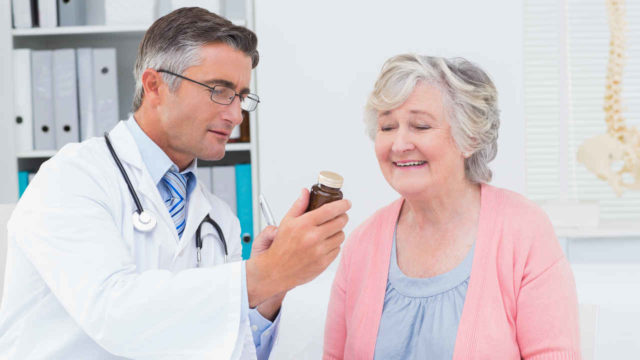Here’s how to make sure your medication helps you rather than hurts you.
Over two-thirds of all visits to the doctor result in a prescription being written. Prescription medication is an important part of health care today, especially for those with chronic illnesses. But with so many prescriptions being written, as well as easy access to over-the-counter medications, vitamins and herbal supplements, it can be dangerous if your medications are not managed correctly.
“I always tell my patients that if they have a question or concern or any confusion about a medication, they should always call and ask. I would be more upset if a patient took a medication incorrectly rather than he or she thinking it would be silly to call me with a medication question.”
These tips better ensure that medication helps you rather than hurts you:
- Ask your doctor about any medication prescribed. Doctors are quick to write prescriptions (and patients are quick to take them), but first ask why you’re being prescribed a particular drug, what the possible side effects are and whether there are other options to treat your condition. You should also ask about interactions with other drugs, how the medicine should be stored and how you’ll know if it’s working.
- Take medicine as directed. It’s important to follow your doctor’s instructions when taking medicine. Don’t skip doses or stop taking a medication without first talking with your doctor. Also don’t take more than recommended, since some drugs can quickly result in overdoses. You should get rid of medication once it’s no longer needed or has expired. Don’t save it “just in case you need it” later.
- Keep a medication list. This should include all medicines you use, including prescriptions, OTC drugs, vitamins and supplements. Note the names and dosage. Be sure to share this information with any doctor you see and any pharmacy you use.
- Review your drugs yearly. Go over all medicines, vitamins and supplements you take each year with your doctor to make sure you’re only taking what you need.
- Dispose of medications safely. Once a medication has expired or is no longer needed, you should dispose of it to lower the chance that someone accidentally or intentionally misuses the medication. Mix medications with kitty litter, dirt or coffee grounds before disposing in the trash.
- Never take someone else’s medicine. It may seem harmless to take a drug someone else has been prescribed, but it can be dangerous to do so. The medication may interact with other drugs you take or may impact a health condition in a way you don’t know about. If you think you need a medication, talk to your doctor.
Copyright 2017-2019 © Baldwin Publishing, Inc. All rights reserved.
Health eCooking® is a registered trademark of Baldwin Publishing, Inc. Cook eKitchen™ is a designated trademark of Baldwin Publishing, Inc. Any duplication or distribution of the information contained herein without the express approval of Baldwin Publishing, Inc. is strictly prohibited.
Date Last Reviewed: August 13, 2019
Editorial Review: Andrea Cohen, Editorial Director, Baldwin Publishing, Inc. Contact Editor
Medical Review: Perry Pitkow, MD
Learn more about Baldwin Publishing Inc. editorial policy, privacy policy, ADA compliance and sponsorship policy.
No information provided by Baldwin Publishing, Inc. in any article is a substitute for medical advice or treatment for any medical condition. Baldwin Publishing, Inc. strongly suggests that you use this information in consultation with your doctor or other health professional. Use or viewing of any Baldwin Publishing, Inc. article signifies your understanding and agreement to the disclaimer and acceptance of these terms of use.
